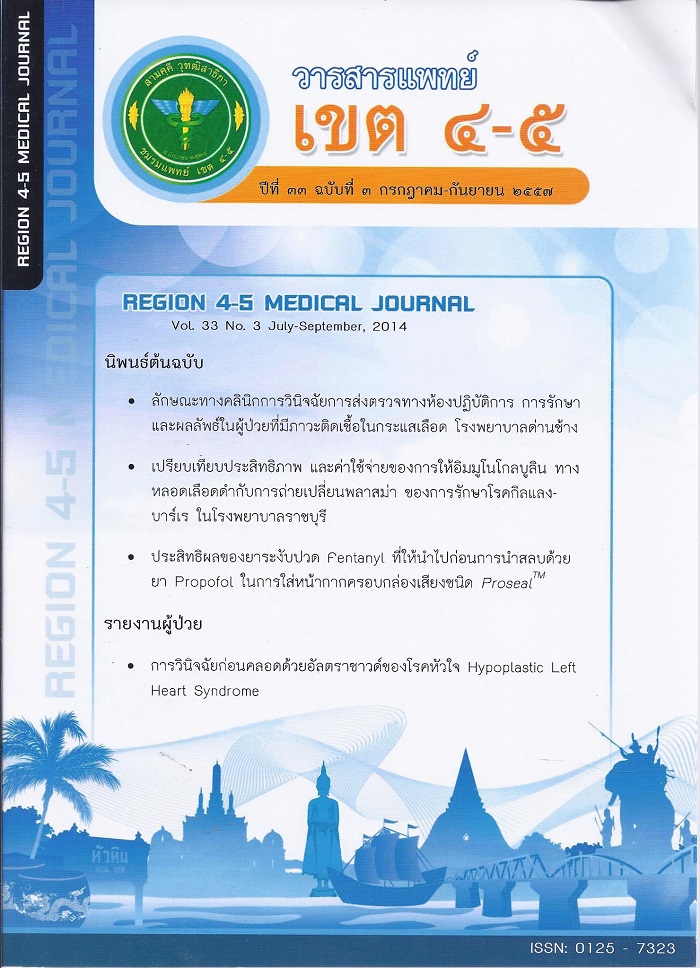การประเมินการพัฒนาหลักสูตรนักบริหารการแพทย์ และสาธารณสุขระดับสูง (น.บ.ส.)
บทคัดย่อ
In this research, an assessment has been conducted on the program development of the 27th - 29th Medical and Health Administrative Training which took place during 2011 - 2013. Each training lasted 13 weeks, and the training was divided into 3 stages and 5 parts. The CIPP Model (Stufflebeam DL et al1) has been used in the analysis and assessment. All 144 participants of the training were employee of the Ministry of Public Health, 112 male and 32 female corresponding to 77.78% and 22.22% respectively. 96 of them (66.67%) aged between 45-54 years old. 45 (31.25%) were holding the position of Deputy Director of Medicine at a regional or general hospital. 99.31% and 98.61% of the participants agreed that the training was worth the budget and time spent respectively.
The participants of the training also agreed that the objective of the program was clear, relevant to the policy of their organization, suitable to the current situation, and match the participants’ needs (95.83%). The curriculum, trainers and pedagogy were all found to be well suited, e.g. 90.97% agreed with the training time period and 91.67% thought that the theoretical-to-practical proportion of the training was already appropriate. The facility, equipment, handouts, training schedule, practical training, visit, trainer, facilitator, assessment and management of the program were all found to be at the “well appropriate” level.
In term of the training effectiveness, all 144 participants of the training passed the test and evaluation criteria in both knowledge and behavior, based on the written test and interview. Out of 100, the highest score of 89.80 and the lowest score of 78.20 were achieved. The participants additionally suggested that the content, trainer and pedagogy can still be further improved. For instance, the personality training could allocate more time for practice and discussion with others; more practical training on budget and finance management is needed; more field visit to other sectors should be arranged in order to widen their vision; and people from other organizations outside the Ministry of Public Health should be allowed to participate in order to exchange knowledge and idea and to build network.
ดาวน์โหลด
เผยแพร่แล้ว
รูปแบบการอ้างอิง
ฉบับ
ประเภทบทความ
สัญญาอนุญาต
ลิขสิทธิ์บทความเป็นของผู้เขียนบทความ แต่หากผลงานของท่านได้รับการพิจารณาตีพิมพ์ลงวารสารแพทย์เขต 4-5 จะคงไว้ซึ่งสิทธิ์ในการตีพิมพ์ครั้งแรกด้วยเหตุที่บทความจะปรากฎในวารสารที่เข้าถึงได้ จึงอนุญาตให้นำบทความในวารสารไปใช้ประโยชน์ได้ในเชิงวิชาการโดยจำเป็นต้องมีการอ้างอิงถึงชื่อวารสารอย่างถูกต้อง แต่ไม่อนุญาตให้นำไปใช้ในเชิงพาณิชย์




